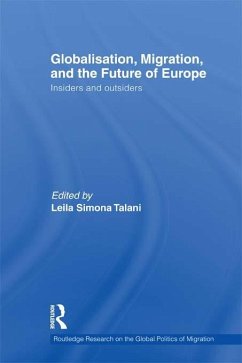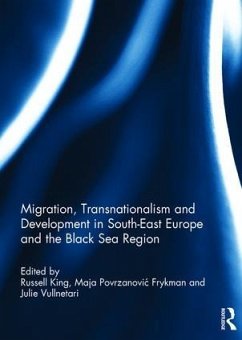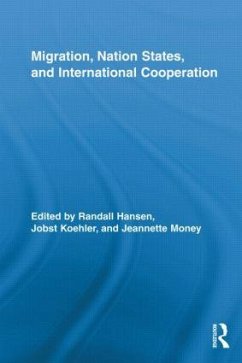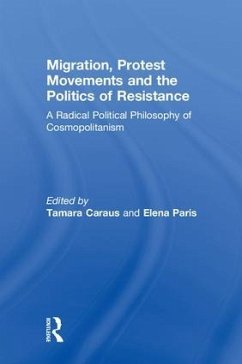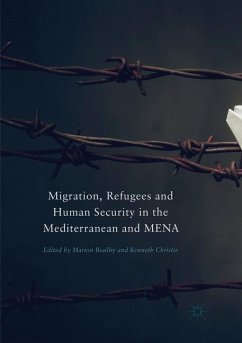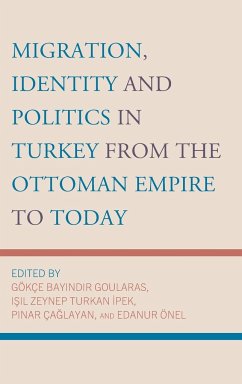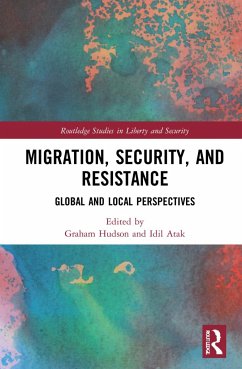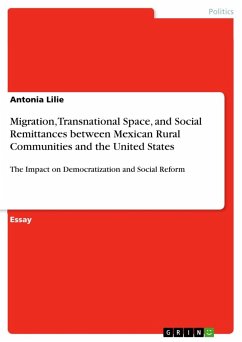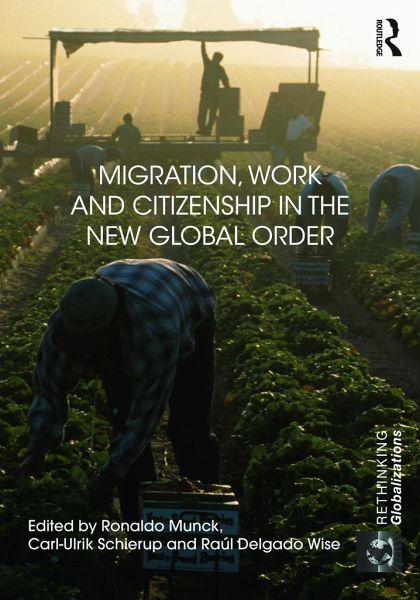
Migration, Work and Citizenship in the New Global Order

PAYBACK Punkte
84 °P sammeln!
Any consideration of global migration in relation to work and citizenship must necessarily be situated in the context of the Great Recession. A whole historical chapter -- that of neoliberalism -- has now closed and the future can only be deemed uncertain. Migrant workers were key players during this phase of the global system, supplying cheap and flexible labour inputs when required in the rich countries. Now, with the further sustainability of the neoliberal political and economic world order in question, what will be the role of migration in terms of work patterns and what modalities of political citizenship will develop? While informalization of the relations of production and the precarization of work were once assumed to be the exception, that is no longer the case. As for citizenship this book posits a parallel development of precarious citizenship for migrants, made increasingly vulnerable by the global economic crisis. But we are also in an era of profound social transformation, in the context of which social counter-movements emerge, which may halt the disembedding of the market from social control and its corrosive impact. This book was published as a special issue of Globalizations.
This book considers the increasing importance of both labour migration and precarious work in our global world. It goes on to ask whether such migrants may become a key component in the social movement emerging to counter globalisation. This book was published as a special issue of Globalizations.





